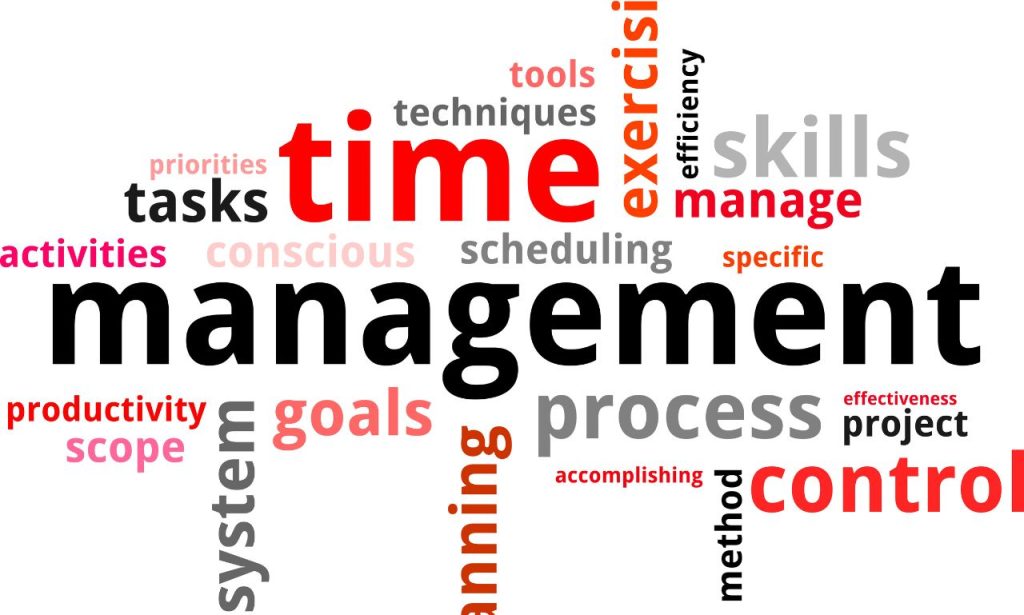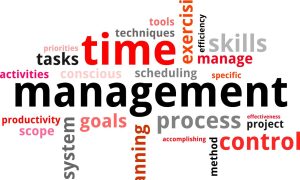Success in real estate isn’t just about knowing properties and neighborhoods. The truth? Your sales skills often make the difference between closing deals consistently and struggling to make ends meet. After working with thousands of real estate professionals and studying the industry for years, I’ve identified the core competencies that separate top performers from the rest.
The real estate market has undergone significant changes. Today’s clients are more informed, have higher expectations, and demand exceptional service. Whether you’re starting with your real estate license or looking to advance your existing career, mastering these essential sales skills will significantly impact your commission checks and client satisfaction.
Let’s break down the must-have skills that will transform your real estate business and help you thrive even during seasonal slowdowns or unstable markets.
Communication Skills
Your ability to communicate effectively might be the most critical factor in your real estate success. I’ve seen agents with average market knowledge outperform experts simply because they could explain processes better to their clients.
Clear communication starts with understanding your audience. First-time homebuyers need different information from seasoned investors, so tailor your language accordingly. Avoid industry jargon when speaking with newcomers to the market, but demonstrate your expertise when dealing with experienced clients.
Written communication matters, too. Your emails, text messages, and marketing materials represent your professional brand. Take time to proofread everything. A simple spelling mistake might seem minor, but it can undermine client confidence in your attention to detail, a crucial quality when handling expensive transactions.
Non-verbal communication speaks volumes in this industry. Your body language during showings and meetings can build trust or create doubt. Maintain eye contact, offer a firm handshake, and show genuine interest through active engagement. These subtle cues build rapport faster than any sales pitch.
Time Management

Real estate agents manage multiple clients, properties, and tasks simultaneously. Without strong time management, opportunities slip through the cracks. I’ve coached real estate professionals who doubled their income simply by implementing better systems.
Start by time-blocking your calendar. Designate specific hours for lead generation, client meetings, showings, and administrative tasks. Protect these blocks religiously. Be fully present when showing properties, and eliminate distractions when prospecting.
Technology can multiply your efficiency. CRM systems track client interactions and set automatic follow-ups. Digital signing tools eliminate unnecessary meetings. Calendar apps with automatic reminders ensure you never miss a critical deadline or an appointment.
Remember that not all activities are equally valuable. Identify your high-ROI tasks—usually those involving direct client contact or lead generation—and prioritize them. Administrative work, while necessary, can often be batched or delegated to maximize your productive hours.
Problem-Solving
Real estate transactions rarely go perfectly smoothly. The difference between good and great agents? Their ability to solve inevitable problems without panicking. This skill alone can save deals that would otherwise fall through.
Develop a methodical approach to challenges. When issues arise—whether financing complications, inspection concerns, or title problems—take a moment to assess the situation thoroughly before reacting. Gather information, identify potential solutions, and present options clearly to your clients.
Your network becomes invaluable for problem-solving. Cultivate relationships with mortgage brokers, inspectors, contractors, and attorneys. When you need specialized help to overcome an obstacle, knowing precisely who to call can save crucial time and reduce client stress.
The best agents anticipate problems before they develop. By understanding common transaction pitfalls, you can proactively address potential issues. This foresight transforms you from a mere salesperson to a trusted advisor in your client’s eyes.
Flexibility and Adaptability
Economic shifts, interest rate fluctuations, and local market conditions create an ever-evolving landscape, leaving rigid agents behind.
Stay informed about market trends through industry publications, continuing education, and networking with fellow professionals. When conditions shift, be ready to adjust your strategies accordingly. During a seller’s market, your approach differs significantly from tactics that work in buyer-friendly conditions.
Technology adoption demonstrates adaptability. From virtual showings to AI-powered customer profiling tools, embracing new tech keeps you competitive. I’ve seen veteran agents revitalize their careers by leveraging the immersive technologies of younger competitors.
Client preferences also vary widely. Some want constant communication, while others prefer minimal contact until necessary. Some people make decisions quickly, while others need extensive data before making a decision. Tailor your approach to each client’s style rather than forcing everyone into your preferred process.
Patience & Empathy
Financial concerns, emotional attachments, and significant life transitions all contribute to client anxiety. Patience becomes essential when guiding people through this process.
Show genuine empathy by genuinely listening to the client’s concerns. Acknowledge their feelings without judgment. When clients feel understood rather than rushed, they make better decisions and develop stronger loyalty to you as their representative.
The timeline for real estate transactions often extends longer than clients initially expect. Maintain your energy and enthusiasm throughout the process, even when facing delays or setbacks. Your consistent positivity reassures clients during uncertain phases.
Remember that this might be your tenth transaction this month for you, but for your client, it might be the most significant financial decision of their life. This perspective helps maintain patience even with the most demanding clients.
Active Listening
Most people listen to respond rather than to understand. Break this habit. Active listening involves fully concentrating on what clients say, understanding their message, and responding thoughtfully.
Ask clarifying questions that show you’re paying attention. “When you say you want a family-friendly neighborhood, what specific features are most important?” Such questions reveal crucial preferences that might otherwise remain unstated.
Take notes during client conversations. This simple practice serves multiple purposes: it ensures you remember important details, demonstrates professionalism, and allows you to review client needs before future meetings.
What clients don’t say often matters as much as what they do say. Watch for nonverbal cues that might indicate concerns or excitement. If a client’s words express interest but their body language shows hesitation, gently explore potential reservations they may have.
Persistence
The real estate business tests your resilience. Deals fall through. Clients change their minds. Market conditions shift unexpectedly. Successful agents push through these challenges with strategic persistence.
Develop a consistent follow-up system for leads and past clients. Studies consistently show that most sales happen after multiple contacts, yet many agents give up too soon. Create value at each touchpoint rather than simply checking in. Share relevant market updates or property information that matches specific client interests.
During negotiations, persistence takes the form of creative problem-solving. When initial offers get rejected, find alternative approaches rather than accepting defeat. Different terms, closing timelines, or contingencies could make a deal work for all parties.
Balance persistence with respect for client boundaries. Know when to keep pursuing opportunities and when to step back. This discernment prevents persistence from becoming annoying pressure.
Marketing Skills
Today’s real estate agents must be skilled marketers. Whether promoting properties or building your brand, effective marketing drives your business growth.
Digital marketing fundamentals have become essential. Understand how to leverage social media platforms, email campaigns, and content marketing to reach potential clients. Each platform serves different purposes. Instagram showcases visual property features, while LinkedIn might connect you with relocating professionals.
Professional photography and videography have a dramatic impact on property marketing results. I’ve analyzed thousands of listings and consistently found that high-quality visuals generate more inquiries and faster sales. Invest in professional photography or develop these skills yourself.
Personal branding distinguishes you in a crowded marketplace. Identify your unique value proposition—perhaps your deep knowledge of specific neighborhoods, expertise with investment properties, or exceptional service for first-time buyers. Then, consistently communicate this differentiation through all marketing channels.
Negotiation
Strong negotiation skills directly impact your clients’ financial outcomes and your reputation. The best negotiators create solutions that satisfy all parties.
Preparation forms the foundation of successful negotiations. Before entering discussions, thoroughly research comparable properties, understand market conditions, and clarify your client’s priorities and bottom line. This homework gives you confidence and credibility.
Focus on interests rather than positions. Instead of getting stuck on the initial asking price (a position), explore what truly matters to each party (interests). Perhaps the seller values a quick closing more than the final price, or the buyer would accept a higher offer in exchange for certain repairs.
Emotional control gives you a tremendous advantage during negotiations. When others get flustered, maintain your composure. This calm presence often leads to better outcomes and earns clients’ trust during stressful moments.
What Makes You Stand Out as a Realtor?
The most successful real estate agents combine technical expertise with distinct personal qualities that create memorable client experiences.
Industry insight beyond basic market knowledge sets top performers apart. Understanding economic indicators, development plans, and regional growth patterns helps you provide value that clients can’t easily find online.
Authenticity builds deeper trust with clients than any sales technique. It shows in every interaction when you genuinely care about client outcomes rather than just commission checks. I’ve interviewed hundreds of satisfied real estate clients, and they consistently mention their agent’s sincerity as a deciding factor in choosing representation.
Accessibility during the process demonstrates your commitment. While maintaining healthy boundaries, ensure clients can reach you when needed. Today’s technology makes it easier to be responsive without sacrificing your personal life entirely.
The willingness to educate rather than sell transforms client relationships. When you take time to explain processes, options, and implications, clients make better decisions and appreciate your guidance. This consultative approach leads to stronger referral networks.
What is the #1 Skill a Salesperson Should Have?

If I had to identify the most essential skill for success in real estate sales, it would be relationship building. Everything else supports this fundamental ability to connect with clients and colleagues.
Strong relationships generate repeat business and referrals—the lifeblood of sustainable real estate careers. While market conditions fluctuate and technologies evolve, the value of trusted relationships remains constant.
Relationship building starts with genuine curiosity about client needs. Ask thoughtful questions about their goals, concerns, and timelines. Then, listen carefully to their responses rather than rushing to propose solutions.
Consistent follow-through strengthens relationships over time. When you do what you say you’ll do reliably and promptly, you build the trust necessary for mutually beneficial, long-lasting relationships that survive beyond individual transactions.
Conclusion
The must-have sales skills for real estate agents combine technical expertise with deep human qualities. Communication, time management, problem-solving, adaptability, empathy, active listening, persistence, marketing, and negotiation all play a role in your success in this competitive industry.
What distinguishes exceptional agents is their ability to integrate these skills while maintaining authenticity. Technical competence without genuine care falls flat, and personality without professional capability leads to missed opportunities.
As you develop these essential sales skills, focus on continuous improvement rather than perfection. The real estate industry rewards those who consistently upgrade their capabilities and adapt to changing conditions. Committing to growth in these key areas allows you to position yourself for long-term success regardless of market fluctuations.
Start by honestly assessing your strengths and weaknesses across these skill categories. Then, create a deliberate plan to improve in areas where you have the most significant opportunity for growth. Investing in these fundamental sales skills will deliver returns throughout your real estate career.
ALSO READ: 10 Benefits of Working with a Real Estate Agent When Buying a Home
FAQs
While basic competencies can be developed within months, mastery typically requires 2 to 3 years of consistent practice and intentional improvement.
New agents should prioritize communication skills, which form the foundation for client relationships and effective transactions.
While some people have natural aptitudes, all the essential sales skills can be learned and improved through deliberate practice and proper mentorship.
Technology proficiency has become essential as clients expect digital convenience, and competitors leverage tech tools for marketing and transaction management.
Improve negotiation skills through role-playing with colleagues, studying successful deals, and seeking mentorship from experienced negotiators in your brokerage.




